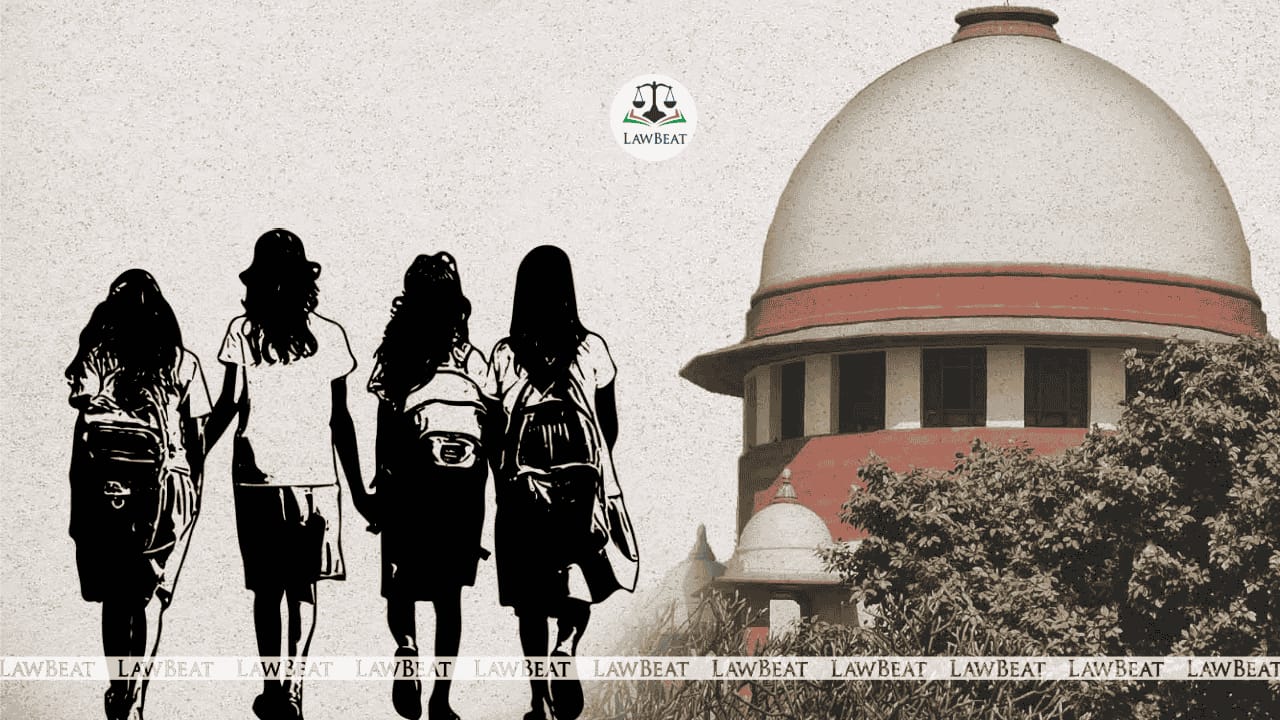Menstrual Hygiene Policy: SC Directs Centre to Clarify Concerns Over Data Accuracy

It was contended that there are glaring inconsistencies in the data relied upon in the policy documents
The Supreme Court recently asked the Union government to clarify a petitioner's contention that the national policy on “menstrual hygiene for school-going girls” has been framed without obtaining the necessary information or assessing the ground situation.
A bench of Justices J B Pardiwala and Manoj Misra told Additional Solicitor General Aishwarya Bhati, appearing for the Union government to look into the various aspects highlighted by the petitioner, Jaya Thakur and clarify the position by the next date of hearing, on December 03, 2024.
Court was informed by the ASG that the Union government has framed a National Policy on “Menstrual Hygiene for School-Going Girls,” which outlines the vision, objectives, targets, current programs, and the roles and responsibilities of stakeholders.
ASG Bhati submitted that still much is required to be done for the proper and effective implementation of the policy.
She informed the court that the Ministry of Health and Family Welfare would coordinate with the States/UTs to draw up their respective action plans ensuring that all aspects of menstrual hygiene policy are drawn up in a comprehensive manner enabling effective rollout of the policy for school going girls of Government and Government-Aided Schools.
In addition, she said that the stakeholder Ministries would ensure that specific action plans to facilitate the rollout and effective implementation of the policy are duly drawn up.
"Special attention shall be given for sensitisation and awareness activities for promoting safe menstrual hygiene practices in all the schools," she said.
Advocate Varun Thakur, appearing for the petitioner, however, claimed the policy framed by the Union government in no manner takes care of the reliefs prayed for in the petition.
He further contended that there are glaring inconsistencies in the data relied upon in the policy documents. He pointed out that the policy claims, “this improvement is largely due to increased awareness and accessibility of sanitary products, with 64.5% of girls using sanitary napkins, 49.3% using cloth, and 15.2% using locally prepared napkins". The counsel claimed the data is incorrect, as the total of these three categories amounts to 129%.
He argued that if the data relied upon by the Union government for framing the policy is flawed, it will be difficult to achieve the policy's objectives.
He also emphasized that the policy has been framed without obtaining the necessary information or assessing the ground situation.
He submitted that the Union government should be directed to correct its data and ascertain, as far as possible, the ground situation across the country before finalizing and implementing the policy.
The counsel further informed the court that during a recent visit by the petitioner to District Damoh, Madhya Pradesh, it was found that there were no peons in the schools and no housekeeping facilities in government middle schools.
The petitioner also discovered through interactions with residents of various districts that the situation was dire. It was claimed that there were no facilities for providing sanitary pads in District Damoh, especially in middle schools (ages 12 to 15 years). In instances where a girl required sanitary pads, the school reportedly asked her to go home.
The bench directed the ASG to examine the issues raised by the petitioner and clarify the position by the next hearing date.
In its earlier order dated April 10, 2023, the court had instructed the Union government to collaborate with all State governments and Union Territories to ensure the formulation of a uniform national policy, allowing sufficient flexibility for States and Union Territories to make adjustments based on their specific conditions.
"Bearing in mind the importance of the issue which has been raised, we direct that all States which has been raised, we direct that all States and Union Territories must submit their menstrual hygiene management strategies and plans which are being executed either with the help of funds provided by the Central Government or through their own funds to the Mission Steering Group of the National Health Mission within a period of four weeks," the court had ordered.
The court had also directed States and Union Territories to indicate the appropriate ratio of female toilets in residential and non-residential schools and outline steps taken to ensure the availability of low-cost sanitary pads, vending machines, and proper disposal mechanisms in schools.
Furthermore, the court had emphasized the provision of low-cost sanitary pads and vending machines in schools and mandated that disposal mechanisms be available in schools or school complexes with female students in upper primary, secondary, and higher secondary classes to ensure the safe disposal of sanitary pads.
Case Title: Dr Jaya Thakur Vs Government of India & Ors
